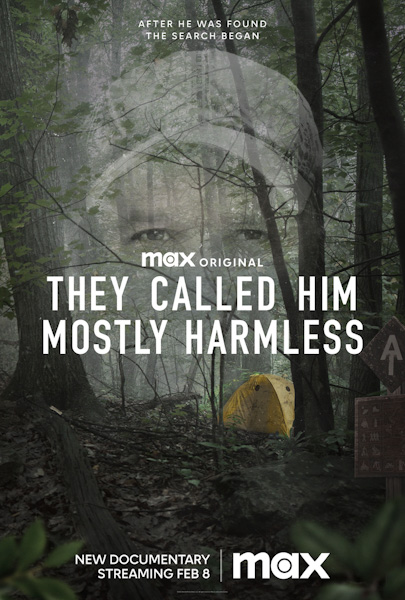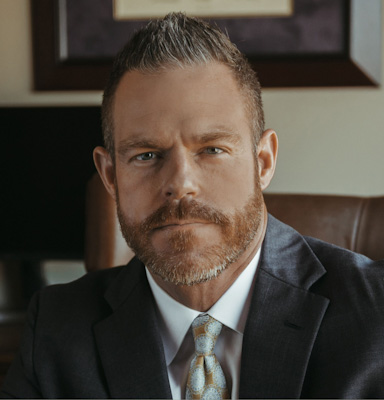'They Called Him Mostly Harmless' documentary explores what drives true-crime junkies

While most true-crime documentaries focus on the actual misdeeds themselves, They Called Him Mostly Harmless, a 2024 documentary on Max, centers less on the death of a man ultimately identified as Vance Rodriguez and more on the internet sleuths interested in the case. (Image from Warner Bros. Discovery)
While most true-crime documentaries focus on the actual misdeeds themselves, They Called Him Mostly Harmless, a 2024 documentary on Max, centers less on the death of a man ultimately identified as Vance Rodriguez and more on the internet sleuths interested in the case.
Perhaps that is because ultimately, there may have been no crime involved. Rodriguez reportedly weighed 83 pounds at the time of his death, and his body was found in a tent in the Florida wilderness in 2018. He had no identification on his person, and it took more than two years discover who he actually was.
There’s no reason to give away too much, but Rodriguez’s resulting identification provided plenty of explanation as to why none of his family or friends seemed to be looking for him.
As I’ve researched and written this column over the past several years, I’ve realized there are three integral ingredients that can create a case ripe for the true crime genre: The matter is unresolved, it has shocking details and there is extensive media coverage.
This documentary fits the criteria. The first prong is self-explanatory; the identity associated with the body was unresolved for some time. The shocking aspect is Rodriguez appears to have purposely gone off the grid to hide his identity, and it looked as though he might have starved to death. Furthermore, there was plenty of media coverage.
The only caveat is that much of the coverage came from more nontraditional sources, such as social media. And while his identification process is central to the documentary, it’s not for reasons one would initially think. A large portion of the film provides an interesting and generally unexamined look at the true-crime community.
When I say “community,” I’m talking about self-described internet “sleuths” who devote significant amounts of time and effort on true-crime cases. Aside from simply sharing opinions in online groups and threads, these folks spend countless hours reviewing case documents, submitting Freedom of Information Act requests and chasing whatever threads they may unravel.
The production team for They Called Him Mostly Harmless offers two such examples: Natasha Teasley and Christie Harris.
Teasley is a fellow member of the overarching hiker community Rodriguez belonged to. She became interested in the case as a fellow outdoor advocate, joining a Facebook group focused on uncovering Rodriguez’s then-unknown identity. Although the production team fails to offer much information about her circumstances, she is characterized as generally altruistic in her attempts.
Harris is portrayed as the story’s villain. As the original moderator of the initial Facebook group, she rules over her compatriots with a digital iron fist. Little background information is provided, but Harris’ own statements and actions presented the production team with more than enough material.
Throughout the documentary, it feels as though the focus is to inject Harris and Teasley into a quasi-protagonist/antagonist relationship. But the attempt falls short due to a lack of character development.
What that focus does present, though, is a parallel rift in the motives of these true-crime sleuth communities and the resulting infighting between the members of the different factions. Some are portrayed as having altruistic motives, while others appear to be driven by ego.
Although police initially attempted to appeal to the true-crime groups for help, the pettiness reached the point that law enforcement attempted to distance themselves from the community.
“When it starts to get Days of Our Lives like that, [we] move on,” one law enforcement officer says.
For instance, when Harris quits as the Facebook group moderator, the rest of the group nominates Teasley for the position. Harris starts a new group, some members follow her, and the audience gets a firsthand view at the ridiculousness of some of the sleuths’ conduct and ideas as they try to discover Rodriguez’s identity.
At one point, Harris discusses one of the main rules of sleuthing: “You never go real life.” Basically, that means reviewing only publicly available evidence and never engaging with real suspects. Sadly, that rule wasn’t followed in this case. Some of the sleuths identified a man named Bill Powell, who wrote a blog under the pseudonym “Ben Reynolds,” as the body—but he is still alive.
According to the documentary, the subsequent harassment Powell and his family received from what he estimates was over 800 people was due to internet groups’ reckless attempts to try and identify the body before anyone else. And some reportedly failed to give up the claim that it was Powell the hikers found, despite his efforts to prove he was not dead.
This paints an interesting dichotomy. There’s no question many sleuths cared deeply about solving Rodriguez’s identity. There was a question, though, as to why they cared so much. Throughout They Called Him Mostly Harmless, it becomes clear that for many of the sleuths, it wasn’t about just finding the identity; it was about finding it first.
Ultimately, the sleuth group moderated by Teasley was able to crowdsource funds for DNA analysis of the available forensic evidence. As for Harris, her stated goal was to get the glory.
“I was hoping I would beat the science,” she says.
Although They Called Him Mostly Harmless offers a somewhat candid look at the true-crime communities’ varying motives, I still don’t understand their deep obsession.
After all, so many seemed oddly connected to an unidentified corpse they had no relation to, going so far as to proclaim that they “missed” the person they “knew,” even though they didn’t really know him.
Perhaps Teasley’s soliloquy toward the conclusion offers our best attempt at understanding.
“Within sleuthing, there are people who feel unseen and feel unheard and feel invisible in the world. This is a way that they can be seen through these people. And this is a way to get closure in your life for things that you’re never going to get closure for,” she says.

Adam Banner
Adam R. Banner is the founder and lead attorney of the Oklahoma Legal Group, a criminal defense law firm in Oklahoma City. His practice focuses solely on state and federal criminal defense. He represents the accused against allegations of sex crimes, violent crimes, drug crimes and white-collar crimes.
The study of law isn’t for everyone, yet its practice and procedure seem to permeate pop culture at an increasing rate. This column is about the intersection of law and pop culture in an attempt to separate the real from the ridiculous.
This column reflects the opinions of the author and not necessarily the views of the ABA Journal—or the American Bar Association.



